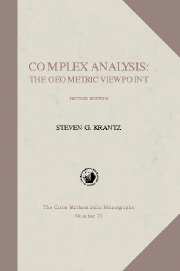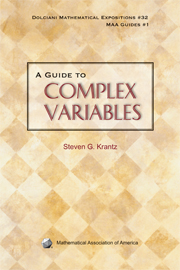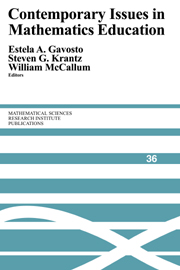Complex Analysis
Geometric methods have been used in complex analysis since the 1930s. Since that time they have become a central part of the research activities of complex analysis. However, these important techniques have never found their way into a text accessible to a broad audience. Steven G. Krantz, a leading worker in complex analysis and a well-known mathematical expositor, has written the first book explaining how complex analysis can be studied using methods of geometry, using the minimum of geometric formalism to gain a maximum of geometric and analytic insight. The climax of the book is an introduction to several complex variables from the geometric viewpoint. The author assumes no background in Riemannian geometry, and only one semester of complex analysis (a review of relevant topics in the classical theory of one complex variable is provided). This inviting book will appeal to students in mathematics, applied mathematics, and physics.
- Excellent reviews
- Winner of Beckenbach book prize
- Established and well-known author
Reviews & endorsements
In five very nicely written chapters, this book gives an introduction to function theory via Riemannian geometry. Very little function-theoretic background is needed and no knowledge whatsoever of differential geometry is assumed.
Product details
No date availableHardback
9780883850268
228 pages
195 × 137 × 23 mm
0.325kg
Table of Contents
- 1. Principal ideas of classical function theory
- 2. Basic notions of differential geometry
- 3. Curvature and applications
- 4. Some new invariant metrics
- 5. A glimpse of several complex variables.








